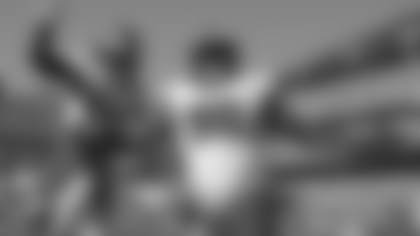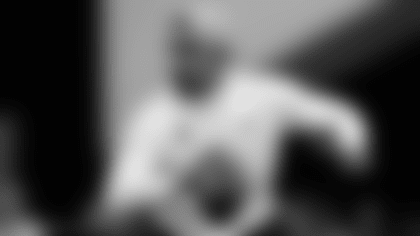Walk up to any Eagles fan and say the following two words: Dallas Cowboys.
Better step back to watch what happens next.
The eyes will narrow, the nostrils will flare, the fists will clench. There will be growling and, most likely, profanity.
That's how most folks in Philadelphia feel about the Cowboys. They want to crush 'em, whup 'em, pound 'em into the turf. The Cowboys aren't the Eagles' oldest rival -- the Giants and Redskins have been around longer -- but the Cowboys stir the most emotion.
But here is a question even the most passionate Eagles fan may have trouble answering: How did it start? When did this series become a blood feud? When did Eagles-Cowboys turn into football's version of the Hatfields and McCoys?
I believe it started in the mid-60s when the Cowboys went from being a hapless expansion team - they were 0-11-1 in 1960 - to an ascending power. Once the Cowboys started winning they enjoyed showing off. When they had the chance to embarrass a weaker opponent they took full advantage. On October 9, 1966, the Cowboys rolled it up on the Eagles, 56-7, in Dallas. The Cowboys were still throwing the ball late in the fourth quarter. The Eagles weren't happy.
One month later, the teams met again at Franklin Field. In the week leading up to the game, Eagles head coach Joe Kuharich made the players watch the film of the earlier game every day to remind them how thoroughly they were humiliated.
"We all squirmed in our seats watching that film," defensive tackle Don Hultz recalled.
The Eagles shocked the Cowboys in the rematch, pulling off a 24-23 upset in which all three Eagles touchdowns were scored on kick returns. Two were kickoff returns by Timmy Brown (93 and 90 yards), the other was a punt return by Aaron Martin (87 yards). The Eagles offense did nothing, managing just five first downs.
The Eagles won but the Cowboys considered it a fluke, especially with the way it ended. In the closing minutes, the Cowboys were driving toward a potential winning score when Eagles safety Joe Scarpati stole the ball out of the arms of Dallas halfback Dan Reeves.

"I was coming in to help with the tackle and as I got there, Dan turned," Scarpati said. "He was still on his feet and had his arm extended. The ball was right there. I just reached in and grabbed it. The official was coming in and he had his whistle raised. He was ready to blow the play dead, but I got the ball first. A split second later would have been too late.
"I started up the field (and returned it 13 yards). I still wasn't sure it was legal until one official took the ball and spotted it there. I thought they might overturn it. It seemed like the Cowboys always got those calls. We suspected (Cowboys president) Tex Schramm had some extra influence on the officials. He was on all those league committees."
Reeves was so enraged, he chased after the official and accidentally knocked him down. Reeves was ejected from the game and fined by the league. He went on to play and coach another 30 years in the league - he coached three teams to the Super Bowl - but he was asked more about that play than almost any other play in his career.
"I give Joe credit for making a heads up play, but to this day I still think it was a bad call," Reeves said. "The whistle should have blown."
When the teams met the following season in Dallas, the Cowboys were looking for revenge. They won in a rout, 38-17, and late in the game linebacker Lee Roy Jordan hit Brown with a cheap shot. There was an overthrown pass, Brown relaxed and Jordan came in with an elbow to Brown's face, breaking his jaw and knocking out four teeth.
From that point on, the rivalry was personal.
Mel Tom knocked out Roger Staubach and drew a hefty fine. Dennis Thurman's late hit ended Harold Carmichael's streak of catching a pass in 162 consecutive games. Tom Landry ran up the score on Buddy Ryan's replacement players in1987 and Ryan returned the favor scoring an in-your-face touchdown on the final play of a 37-20 win a few weeks later. Who could forget Jessie Small KO'ing Luis Zendejas in what became known as the Bounty Bowl?
There is some nasty business in there - along, of course, with the memorable 20-7 Eagles win over Dallas in the 1980 NFC title game - but if you ask me where it truly became a rivalry I'll point to the games in 1966-67. The stolen ball, the elbow to the jaw and the four lost teeth. I think that's where it started. And when the Cowboys wrapped themselves in the "America's Team" banner, well, that didn't play too well in these parts either.
Now it is passed down from one generation of fans to the next. In Philadelphia, fathers who came of age in the 700 level at the Vet tell their sons about the Cowboys. With the players, it is much the same. Mike Quick says he had no particular feeling about the Cowboys one way or another when he came to Philadelphia, but that changed soon enough.
"I was just a rookie when I realized there was something different about the Dallas game," said Quick, the former All-Pro receiver, now the team's radio analyst on Sportsradio 94WIP. "We were walking down the tunnel to the field and Harold Carmichael was next to me. I looked up and saw tears in his eyes. That's how pumped up he was. I thought, 'Wow, I'd better buckle my chin strap today.'
"That's how it goes. The older players pass it on to the younger players. If you're an Eagle, you don't like the Dallas Cowboys."
An award-winning writer and producer, Ray Didinger was inducted into the Pro Football Hall of Fame in 1995. He has also won six Emmy Awards for his work as a writer and producer at NFL Films. The five-time Pennsylvania Sportswriter of the Year is a writer and analyst for Comcast SportsNet. Didinger will provide Eagles fans a unique historical perspective on the team throughout the season for PhiladelphiaEagles.com. You can read all of his Eagles History columns here.























